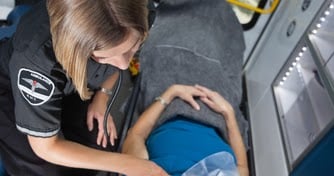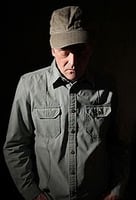Clinicians have searched with mixed success for interventions shortly after trauma occurs to...
Study Suggests Social Networks Affect Post-Disaster Risk of Depression, PTSD
 |
“[T]hese findings highlight the need to look beyond individual effects if posttraumatic mental health is to be adequately understood. Delineating social structures after disaster and how these moderate mental health trajectories can shed light on social interventions that may facilitate adjustment after disaster,” Richard Bryant, Ph.D., of the University of New South Wales, Sydney, and colleagues wrote.
In February 2009, Australia experienced one of its most devastating disasters when severe bushfires tore through the state of Victoria, resulting in 173 fatalities and damage to over 3,500 buildings. From December 2011 to January 2013, Bryant and colleagues interviewed adults from communities affected by the fires, where they asked participants about social connections, as well as the events that took place during and since the fires. They also administered the Posttraumatic Stress Disorder Checklist–Civilian Version and the PHQ-9.
Of the 558 participants included in the analysis, the rate of probable PTSD was 15.6% (N=87), and the rate of probable depression was 38.5% (N=215).
Analysis of the social network data revealed that depression risk was higher for participants who reported fewer social connections, were connected to other depressed people, or were connected to people who had left their community. PTSD risk, on the other hand, was more closely tied to fewer people reporting a connection with the participant, or if the participant was linked to others who were themselves not interconnected. PTSD risk also increased in people who were close to a participant who had higher levels of property loss, suggesting that contact with others who have experienced trauma and social disruption may compound PTSD symptoms.
For related information, see the Psychiatric News article “Study of 9/11 Responders Continues to Unveil New Information on PTSD.”
(Image: iStock/filo)
Take Action on Comprehensive Mental Health Reform
APA is joining forces with several other allied groups in a coordinated grassroots effort throughout this week, urging Congress to pass mental health reform before it adjourns at the end of this year.
APA members are strongly encouraged to contact their members of Congress by Twitter, email, or phone beginning on Tuesday, November 15.
Learn about the legislation and how to take action in a few quick steps at our Action Center.





